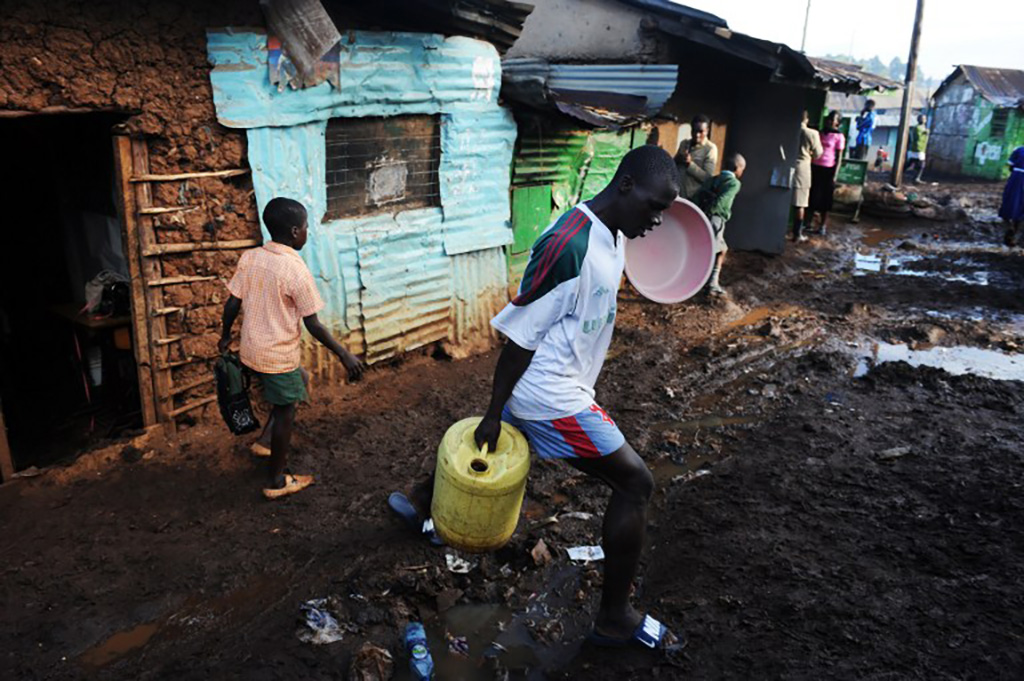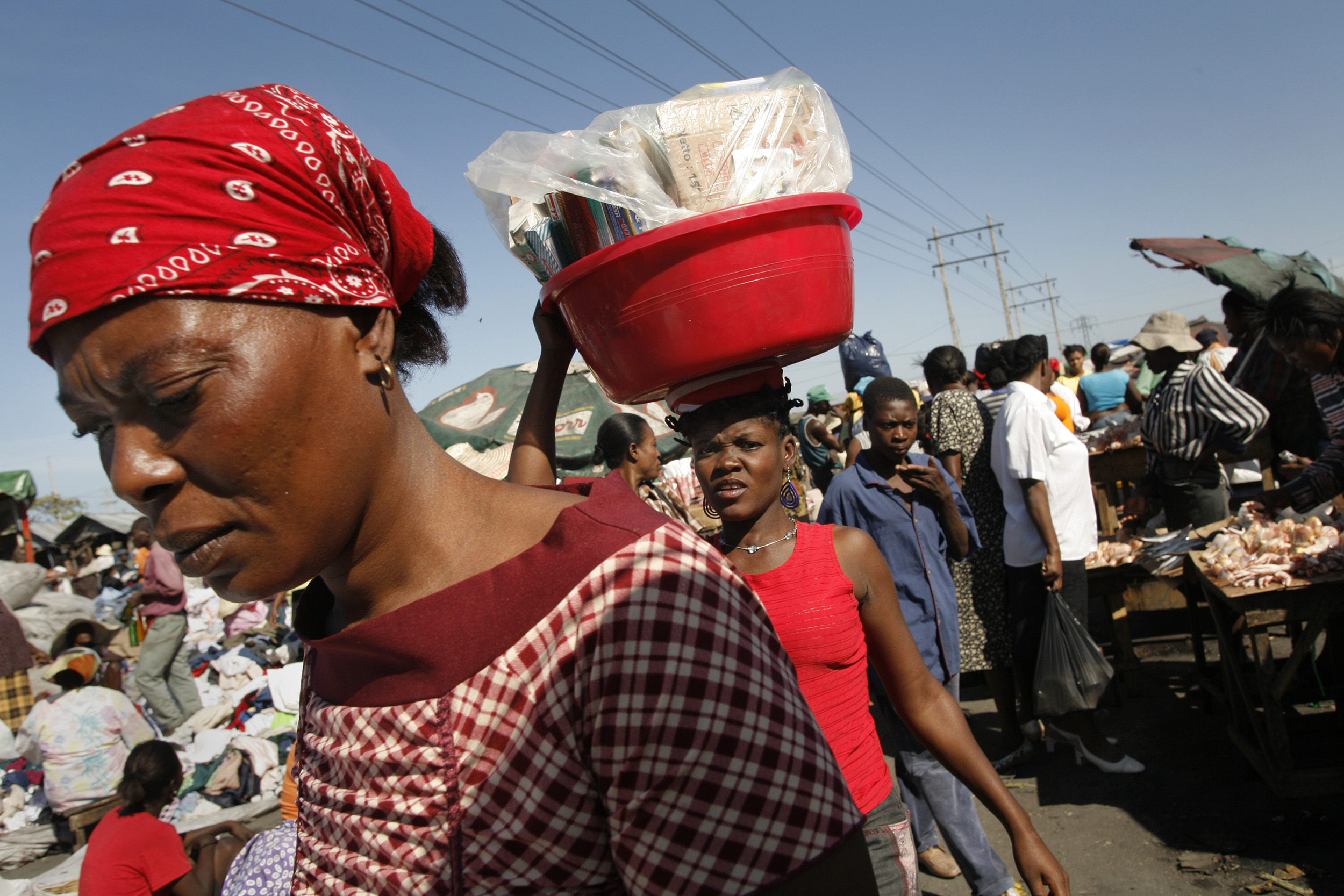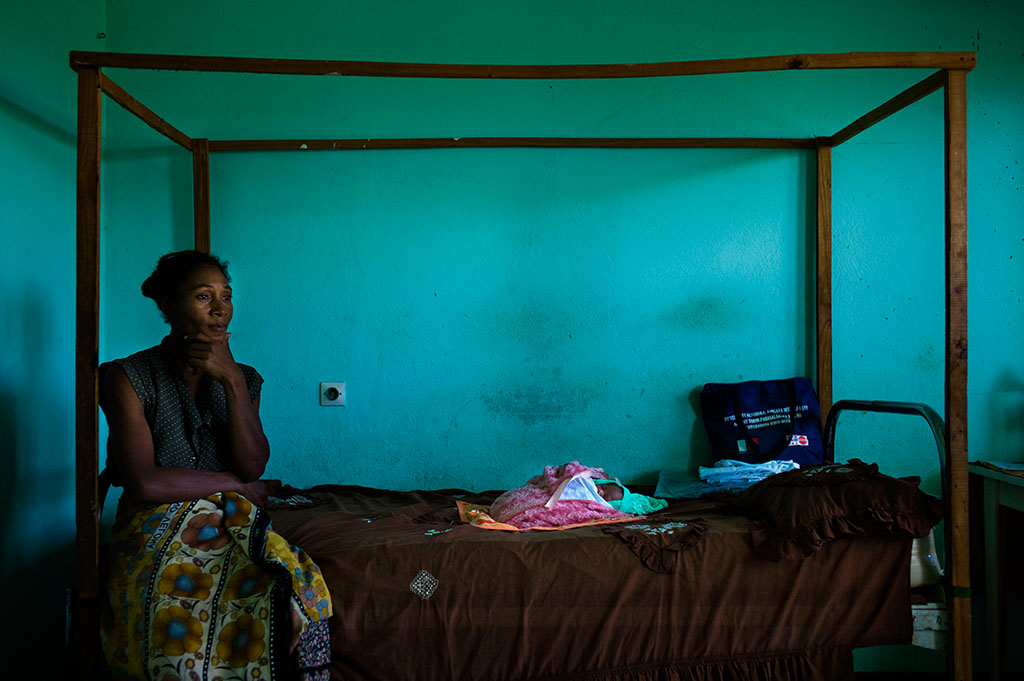The end of poverty?
As economic growth continues to lead many to proclaim the “end of poverty,” activist and ethicist Thomas Pogge External linkargues that poverty won’t go away anytime soon, unless the rules that generate global inequality are addressed at their roots.
As United Nations officials struggle to define the development priorities of the next 15 years, the UN Millennium CampaignExternal link, the World BankExternal link, and many other organs of the development industry tell us that we are nearing the end of poverty. Yet, well over half of human beings are still suffering serious deprivations of poverty, such as child labor, chronic undernourishment, illiteracy, and lack of access to safe drinking water, shelter, sanitation, electricity, and essential medicines.
In some ways, conditions among humanity’s poorer half have improved over the last 25 years. But the trend depends heavily on the definitions and methods used for measurement.
The UN Food and Agricultural OrganizationExternal link recently transformed a steadily rising undernourishment trend into a steadily falling one by introducing an “improved methodology” that counts as undernourished only those whose caloric intake is “inadequate to cover even minimum needs for a sedentary lifestyle” for “over a year.” This definition excludes those who suffer other nutritional deficits (vitamins, proteins, minerals) and those who are not adequately nourished by the sedentary diet because they must do serious physical work in their home or for a living.
The World Bank similarly improved the extreme poverty trend by lowering its international poverty line from $1 per person per day in 1985 dollars to a grotesquely inadequate $1.25 in 2005 dollars.
The morally relevant comparison of existing poverty, in any case, is not with historical benchmarks but with present possibilities: How much of this poverty is really unavoidable today? By this standard, our generation is doing worse than any in human history.
To eliminate severe poverty, the poorer half of humanity would need only six percent of global household income – a shift of just 2.7 percent in their favor. Yet the global distribution is shifting in the opposite direction: The top five percent of humanity gained 2.9 percent of global household income between 1988 and 2008, and now capture nearly half.
In the same period, the poorest 30 percent’s share was compressed from 1.52 percent to 1.25 percent, despite all development assistance efforts. The benefit the poor derive from global growth is decimated by the narrowing of their slice of the expanding pie.
One crucial driver of national and global income polarization is regulatory capture, called “money in politics” on the left and “crony capitalism” on the right. Corporate and elite interests capture the basic rules of the economic system (governing investment, taxation, trade, intellectual property, etc.), which so profoundly influence the economic distribution. The wealthiest agents have the strongest incentives and also the best opportunities to engage in concerted lobbying, and thus perpetually shift the rules in their own favor.
Involving a massive shift of regulation from the national to the supranational level, globalization has opened up a vast new arena for such lobbying. Its prime targets are officials of powerful states – especially in the United States, where political favors are legally for sale, and which still wields unrivaled power in international negotiations.
For those with lobbying clout, international rulemaking is typically easier to influence than national legislation. There is no democratic counterweight to contend with. Lack of transparency makes it easy to conceal influence. And moral concerns about proposed rules are easily dismissed with the remark that international relations are a jungle in which we cannot afford to endanger ourselves through moral self-restraints.
It is not surprising, then, that the last 30 years have seen the emergence of a dense and influential supranational rule system that favors banks, hedge funds, multinational corporations, and billionaires at the expense of a large majority of the world’s people.
Tax cheating and corruption are rife thanks to a worldwide network of tax havens, secrecy jurisdictions, shell companies, and sleazy banks. Poor populations are deprived of their natural resources while their unelected oppressors receive money and weapons to keep themselves in power.
Only affluent countries are still permitted to practice protectionism under rules grandfathered into the World Trade Organization agreements. Strong intellectual property protections are required from all WTO members, disrupting medical provision and food supplies in the developing world.
Weak environmental standards allow the affluent to burden the poor with the byproducts of their massive consumption, and weak labor rights push poor countries into a race to the bottom as they seek foreign investment by offering an underpaid and mistreatable workforce.
Development assistance can be helpful, but it also sustains the status quo by feeding the complacent belief that enough is being done. In any case, aid on its own cannot overcome the powerful headwind generated by a supranational institutional order designed by the rich for the rich.
To raise the income share of the poor, this order must be reformed. Some ideas in this direction are straightforward:
• Require the beneficial owners of all accounts to be known, and their income to be reported to their home country.
• Impose a global alternative minimum tax on multinational corporations to undercut their incentive to dodge national taxes.
• Stop recognizing dictators as entitled to sell “their” country’s natural resources, and to incur debts on its behalf.
• Impose a fee on protectionist subsidies both to discourage them and to compensate poor populations for the export opportunities they destroy.
• Curtail the delivery of arms into the developing world.
• Tax greenhouse gas emissions for development.
• Allow pharmaceutical innovators to be rewarded from public funds for the health impact of their product if they agree to sell it at or below manufacturing cost.
• Allow agricultural and green innovators to be rewarded from public funds for the nutritional and ecological impact of their innovation provided they license it for free around the world.
Only by changing the rules that generate and maintain vast global inequality can we actually realize the proclaimed ambition of our political leaders to end severe poverty by 2030. We must address its root causes, rather than treating its symptoms under the guise of charity.
Opinion series
swissinfo.ch publishes op-ed articles by contributors writing on a wide range of topics – Swiss issues or those that impact Switzerland. Over time, the selection of articles will present a diversity of opinions designed to enrich the debate on the issues discussed.
This article was originally published in the Mark NewsExternal link

In compliance with the JTI standards
More: SWI swissinfo.ch certified by the Journalism Trust Initiative













You can find an overview of ongoing debates with our journalists here . Please join us!
If you want to start a conversation about a topic raised in this article or want to report factual errors, email us at english@swissinfo.ch.